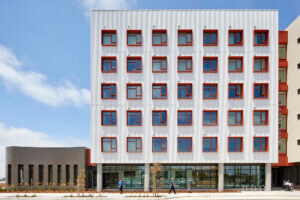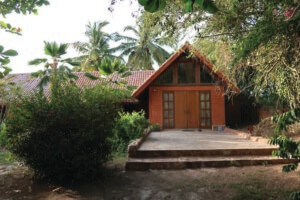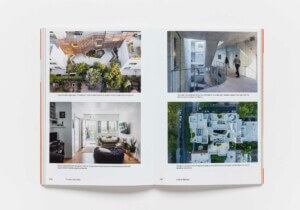In response to an urgent need for low-cost, dignified, and quick-to-construct housing in sub-Saharan Africa brought on by accelerating rates of urbanization, the Bergen, Norway-based building tech startup Othalo is simultaneously seeking to tackle another pressing issue by incorporating the global surfeit of plastic waste into affordable new dwellings.
The “patent-pending technology to manufacture building systems using recycled plastic waste” developed by Othalo has caught the attention of UN-Habitat, the United Nations Human Settlements Programme, which marked World Habitat Day 2020 earlier this month in part by announcing a partnership with Othalo. The plan is to further develop the technology and complete three housing prototypes built from 100 percent recycled plastic waste within the next 18 months before moving to the mass production stage. “There is only one technology in the world today that can do something real about Africa’s housing deficiency and the plastic waste problem, and that is Othalo,” said Vincent Kitio of UN-Habitat’s Urban Energy division in a recent press statement.
The three pilot dwellings will be constructed in the rapidly growing cities of Nairobi, Kenya, Dakar, Senegal, and Yaoundé, the capital of Cameroon, using components—roofing, flooring, wall partitions, etc.—that have been manufactured in an Estonian factory. Following the pilot phase, a factory is planned to be built in Kenya.
The partnership comes after four years of research and development of the technology by Othalo founder Frank Cato Lahti, working alongside SINTEF, a 70-year-old independent research organization in Trondheim, Norway, and experts at the University of Tromsø. To help further realize Lahti’s vision of mass-producing much-needed housing out of plastic waste for UN-Habitat-spearheaded developments in Africa, Othalo has teamed with Norwegian entrepreneur Silje Vallestad and Belgian-born architect and pre-BIG Bjarke Ingels partner Julien de Smedt of JDS Architects.
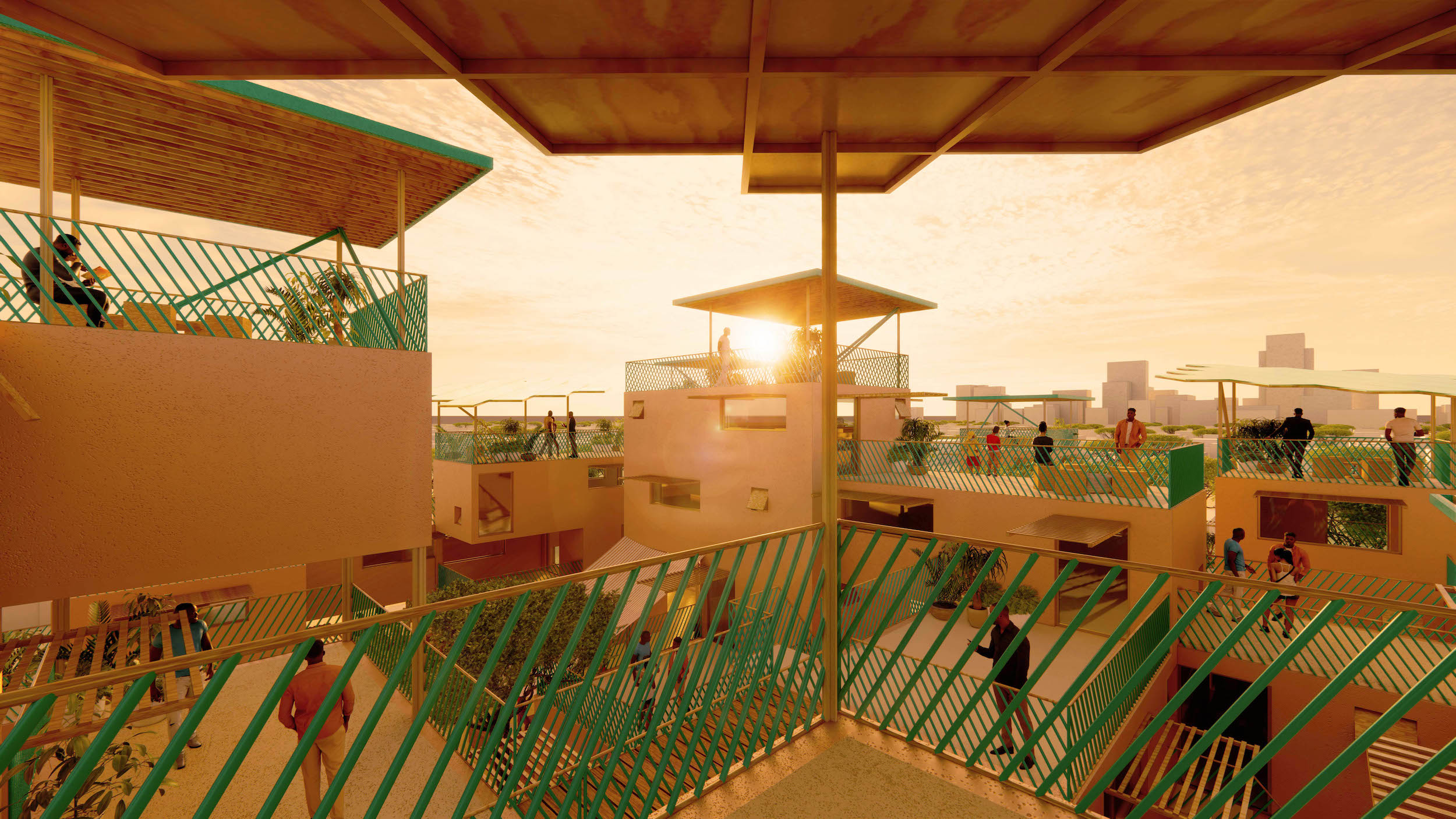
From the sounds of it, the team has their work cut out for them. As described by Othalo, 160 million new housing units are needed now to lift people out of slums on the outskirts of African cities and into sturdily-built, and considerably-designed homes. (Roughly 60 percent of people living in Africa’s urban areas live in unsafe and unsanitary informal settlements that lack basic infrastructure, per UN-Habitat). That number is expected to increase to 360 million homes within the next 30 years. Traditional building methods, described by the startup as being “neither efficient, economical, nor sufficiently sustainable to succeed” simply aren’t viable considering the urgency at hand.
Othalo’s tech-based solution makes use out locally-sourced waste plastic, which there’s certainly no shortage of. As noted by UN-Habitat, from 1990 to 2017 African countries imported roughly 230 metric tons of waste plastic, with the bulk of it winding up in dump sites. One 645-square-foot Othalo home involves the upcycling of eight tons of plastic waste according to the startup. This may seem like a lot but, again, there’s plenty of the material to go around.
Like the sourcing of waste plastic, Othalo aims to keep the manufacturing of housing components local to spur new economic opportunities. Vallestad describes Othalo’s vision as being like a “Kinder Egg, serving three-gifts-in one: affordable quality houses for the one billion who live in slums, large-volume recycling of plastic and job creation.”
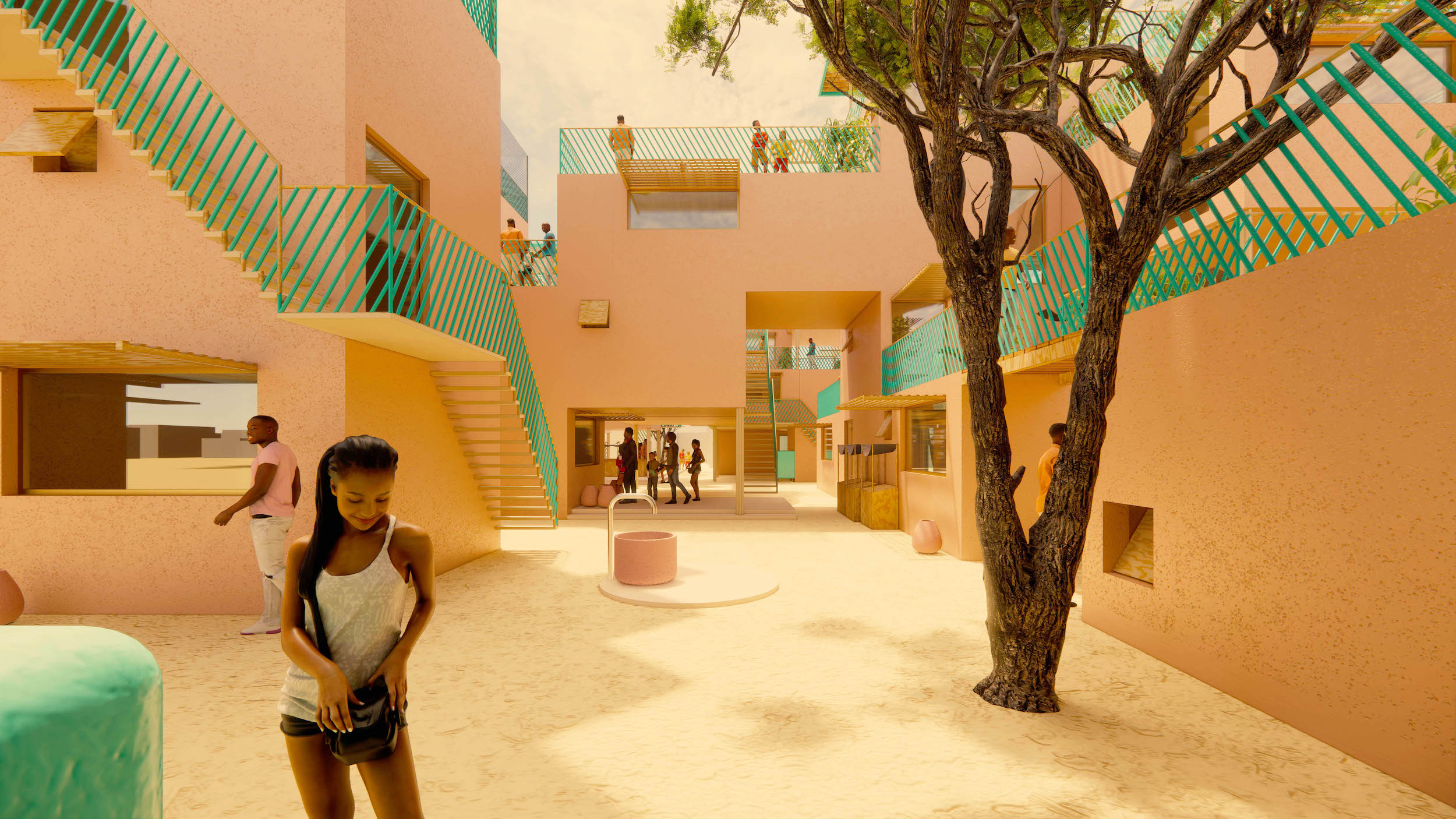
Othalo imagines that the technology can have a wide range of applications beyond housing that it hopes to eventually expand into including mobile storage units for food and medical supplies, refugee shelters, and larger modular buildings like schools and hospitals. Design renderings of Othalo’s housing developments being planned with UN-Habitat depict boxy, stacked apartment blocks made of interlocking modules accented by splashes of color, shaded outdoor terraces, and social spaces, and irregularly shaped windows. Climatically appropriate, playful, and responsive to and respectful of local customs and traditions, the Othalo housing system is intended to be safe and accessible to all.
“In thinking new environments we will set our focus towards the co-creation of living conditions in direct partnership with the local communities and end users,” said de Smedt in a statement. “What we find particularly uplifting in our approach as a company and as architects is the desire to bridge the manufacturing world with the one of the local crafts and culture.”








